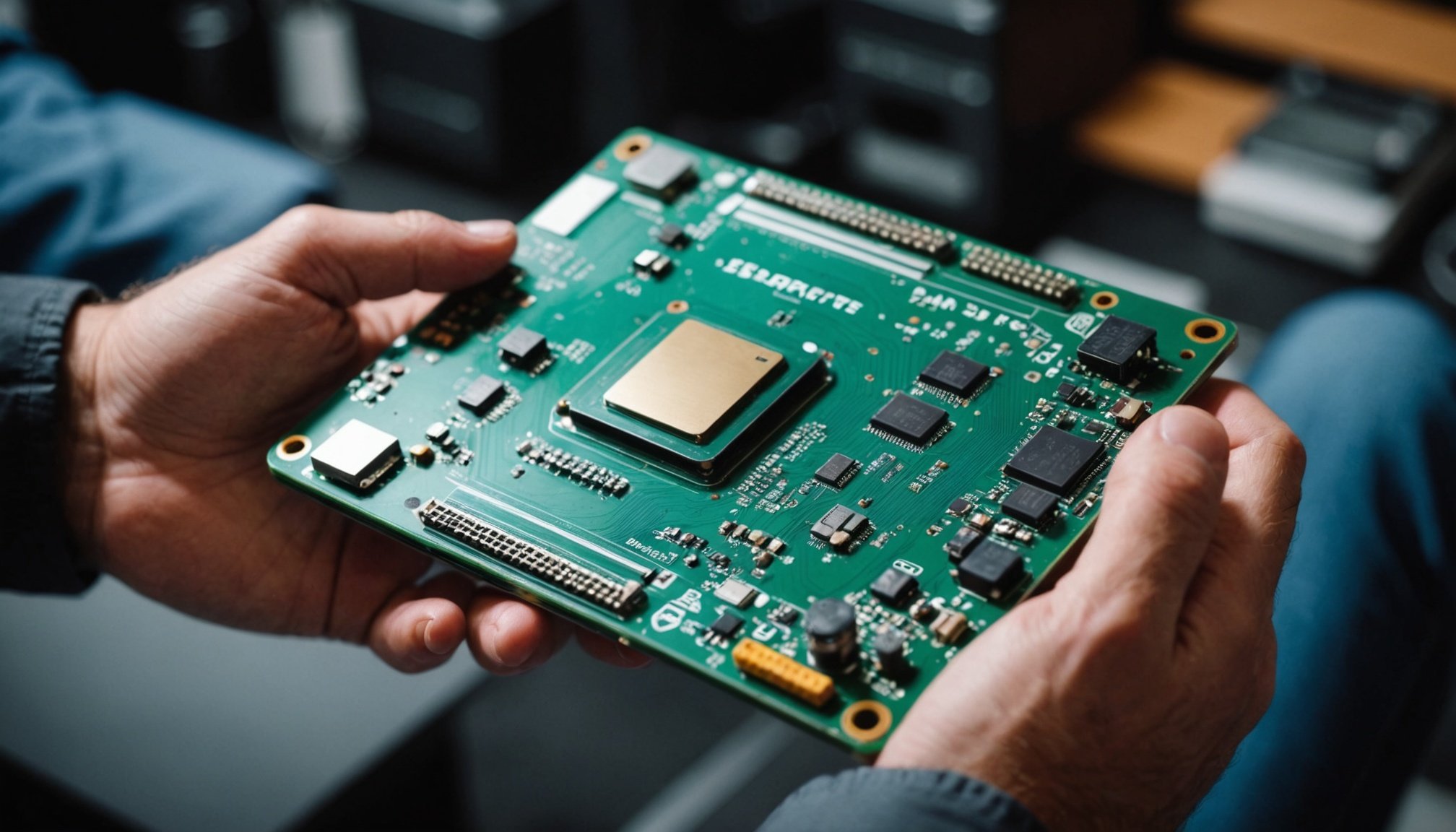Overview of Game-Changing Innovations
Game-changing innovations are pivotal technological shifts that redefine industries, often sparking waves of transformation. Historically, inventions like the steam engine, telephone, and internet paved paths for industry transformation and propelled society into new eras of productivity and connectivity.
Today, these technological breakthroughs continue to flourish, reshaping industries and redefining norms across various sectors. The significance of these innovations lies not only in their ability to enhance efficiency but also in their power to disrupt and create new market landscapes.
Have you seen this : Unlock £7,500 government grants for heat pumps in the uk
The modern era witnesses technological breakthroughs that promise to have far-reaching impacts. For instance, the industry transformation following the integration of AI into sectors such as healthcare and finance illustrates its vast potential. Similarly, autonomous vehicles and renewable energy sources are redefining how societies function and interact with the environment.
Overall, these game-changing innovations set the stage for continuous evolution, prompting businesses and individuals to adapt and harness these advancements. As we delve into recent technological trends, it becomes evident that the momentum of innovation is unrelenting, offering both challenges and opportunities for industry leaders to navigate an ever-evolving landscape.
In the same genre : Top reasons to hire an architect for your loft conversion
Recent Breakthroughs in Technology
The realm of innovation in technology is ever-evolving, with remarkable recent technological breakthroughs permeating diverse fields. At the forefront, artificial intelligence (AI) continues to revolutionise industries, boasting applications in sectors such as finance, healthcare, and more. AI capabilities now extend to enhancing decision-making, improving efficiency, and providing predictive insights that were previously unattainable.
In parallel, blockchain technology innovations are gaining traction, primarily for their ability to enhance security and transparency in transactions. Blockchains foster trust by enabling decentralised, tamper-proof records, which prove invaluable in areas ranging from finance to supply chain management.
Meanwhile, quantum computing developments promise to redefine problem-solving. This avant-garde computing model is set to tackle complex calculations and simulations far beyond the scope of traditional computers. Its potential applications span drug discovery, cryptographic analysis, and optimisation problems that challenge current computational limits.
Bullet Points:
-
Artificial Intelligence Advancements:
-
Enhanced decision-making capabilities.
-
Improved efficiency and predictive insights.
-
Blockchain Technology Innovations:
-
Heightened security and transparency.
-
Utility in finance and supply chains.
-
Quantum Computing Developments:
-
Advanced problem-solving potential.
-
Applications in drug discovery and cryptography.
These breakthroughs encapsulate a robust shift towards digital transformation, heralding profound changes in how industries function and evolve.
Transformations in Healthcare
The landscape of healthcare is undergoing transformative shifts thanks to healthcare innovations. Among these, telemedicine stands out, revolutionising how patients access care. By connecting patients with healthcare professionals remotely, telemedicine enhances accessibility, allowing for timely consultations regardless of a patient’s location. This shift not only promotes convenience but also empowers individuals in remote or underserved areas with consistent medical guidance.
The integration of AI and machine learning into diagnostics marks another leap forward. These technologies reveal patterns in data that human eyes might miss, improving diagnostic accuracy and facilitating early intervention treatments. For instance, AI algorithms analyse medical images to detect anomalies with high precision, boosting the potential for early detection of serious conditions like cancer.
Medical breakthroughs also encompass advancements in patient monitoring through innovative devices. Wearable technology, such as smartwatches and health trackers, now plays an essential role in monitoring vital signs and chronic conditions in real-time. This proactive approach not only aids in preventive care but also provides healthcare professionals with comprehensive data to personalise treatment plans effectively.
Incorporating these innovations, the medical industry continues to evolve, aiming to enhance patient care and outcomes significantly. The harmony of technology in medicine fosters an ecosystem of efficient, precise, and accessible healthcare solutions.
Sustainability and Environmental Innovations
In the realm of sustainable innovations, the focus is on developing technologies that harmonise with the environment. Environmental technology is advancing at a remarkable pace, creating new avenues for clean energy solutions. This trend is exemplified by the significant progress in renewable energy developments, particularly solar and wind power. These technologies are becoming more efficient and cost-effective, reducing reliance on fossil fuels and lowering carbon footprints.
Renewable Energy Developments
Recent innovations in solar photovoltaics and offshore wind turbines have enhanced energy output and reliability. Novel materials, like perovskite, are increasing solar panel efficiency, while floating wind farms expand possibilities into previously untapped ocean areas.
Sustainable Agriculture Practices
Sustainable agriculture is key to addressing food security and environmental preservation. The adoption of practices like permaculture and regenerative farming revives ecosystems by promoting biodiversity and enhancing soil health. These methods not only contribute to higher-yield crops but also support long-term soil sustainability.
Waste Reduction Technologies
Advancements in waste management are crucial for environmental sustainability. Emerging technologies in waste reduction focus on recycling and repurposing materials. Innovations such as advanced sorting systems and biodegradable plastics are instrumental in minimising landfill waste and its harmful ecological impact.
Future Projections and Expert Opinions
The landscape of future innovations is rife with possibility as industry experts offer predictions in technology that highlight transformation on the horizon. These future innovations are expected to redefine how we interact with the world and address complex challenges. Reflecting on expert insights, it’s clear that sectors such as artificial intelligence, biotechnology, and clean energy are at the forefront of upcoming breakthroughs set to impact society profoundly.
Experts predict that as AI continues to evolve, it will underlie predictions in technology by enhancing automation and personalisation across various domains. Biotechnological advancements, especially in genomics and personalised medicine, hold great promise for future innovations aimed at improving health outcomes.
In the realm of clean energy, continued progress is anticipated in areas like energy storage and grid resiliency. Such advances are crucial for achieving sustainability goals and ensuring energy security.
These predictions by experts indicate not just incremental progress but potential paradigm shifts in how industries operate. The societal impact of these ongoing technological changes could be profound, influencing everything from workplace dynamics to healthcare delivery and environmental preservation, thus shaping a new era of future innovations that cater to humanity’s evolving needs.
Real-World Examples of Innovations in Action
In various sectors, case studies reveal how organisations are redefining norms through innovation. A prime example is how companies like Tesla are harnessing game-changing innovations in vehicle technology. Tesla’s electric vehicles break from traditional combustion engines, illustrating the possibilities of industry transformation towards sustainable transport. Similarly, Amazon employs AI to optimise operations, showcasing technological breakthroughs in logistics.
Successful Implementations in Business
Businesses are increasingly realising the benefits of adopting technological breakthroughs. IBM’s use of blockchain enhances transaction transparency and security in supply chains, demonstrating the credible promise of digital transformation across industries. Health tech firms employ AI for predictive analytics, improving patient care and operational efficiency.
Government Initiatives to Foster Innovation
Governments play a pivotal role in innovation. Initiatives like the European Union’s Horizon 2020 fund support research and development, focusing on sustainability and clean energy solutions. Such efforts underscore the strategic importance of sustainable innovations in policy planning, driving industry transformation through collaborative funding and regulations.
Grassroots Movements and Local Innovations
At a community level, grassroots movements illustrate the power of innovation implementation. Organizations like Fab Labs encourage local innovation through open-access technology workshops. These initiatives demonstrate real-world impacts of innovation implementation by fostering creative solutions tailored to community needs.











